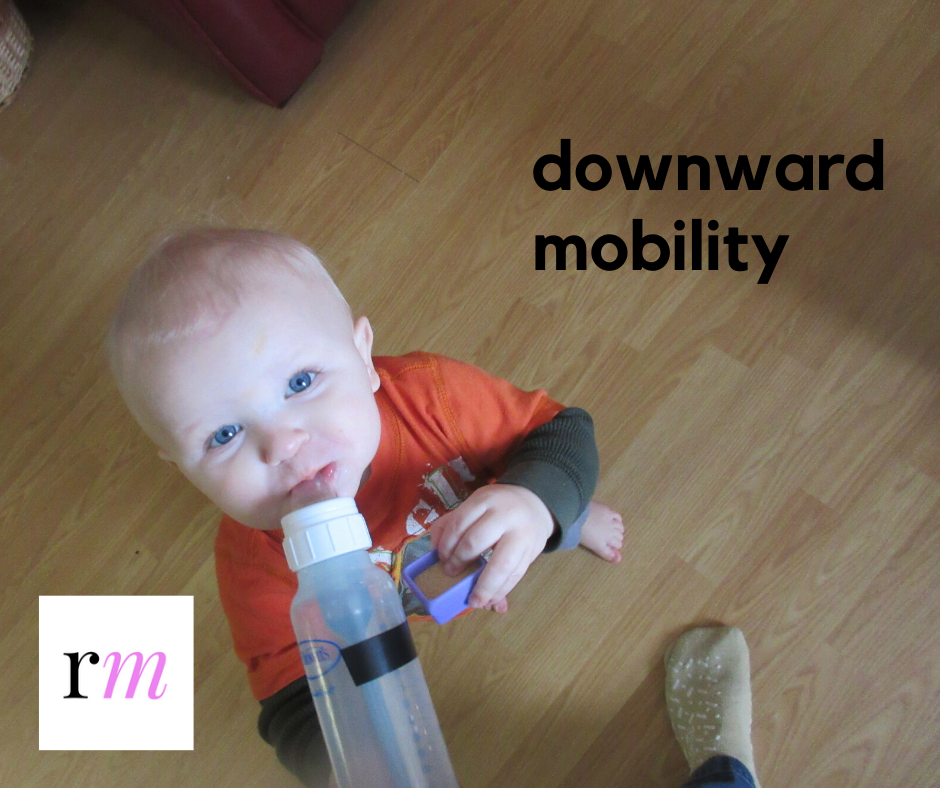It’s been a long time since we’ve had a blog post, hasn’t it?
Every day, several times a day, I think of something I want to write, but there is never any time. Sometimes it’s impossible, because one of the toddlers is crying or in immediate danger of choking, falling, or making a gigantic mess (approximately 95% of their waking hours). Then there’s homeschooling, and feeding people, and keeping a pathway shoveled through the toys and laundry. Most of the time, I really do love and find joy in taking care of everyone and everything at home, but it isn’t always easy to lay down my desires for the sake of the greater good. There are days when I serve my family (how to say this nicely?) not-so-joyfully. There are days when I really want to watch a grownup show on TV. Or go for a walk. Alone. Or relax, in silence, in the bathtub, without anyone coming in to use the toilet. There are times when I think about all the other things I want to do or could be doing, and it’s a struggle to maintain perspective. Even ten years after choosing to become a stay at home mom – nearly 20 years after first becoming a mom (!) – I have to continually recommit myself to doing it with joy and love.

Henri Nouwen and Downward Mobility
When I came across the ideas of voluntary displacement and downward mobility in Henri Nouwen’s Spiritual Direction, I immediately thought of motherhood and how important both of them are in helping us stay faithful and joyful in our calling. More on that in a second. The author, Henri Nouwen, was a Catholic priest, pastor, and professor at Notre Dame, Yale, and Harvard. Then, at the height of his career as a sought-after Ivy League professor, writer, and speaker, he chose to travel to France to live and work in a community for disabled adults. He left everything he had worked his whole life to build to serve a group of people who are, in the eyes of the world, nobody. And he admits that it was hard; that everything in his nature wanted to cling to the prestige and honor and comfort of his old life.
Can anybody else relate to that?
I think there’s a parallel here in the lives of many mothers, especially stay-at-home mothers, who choose to leave a career and possibly a big chunk of their self-image to serve their families. To devote oneself to the care of children is, in the eyes of the world today, a pretty lowly occupation. It goes against our culture’s obsession with upward mobility – the idea that, in Nouwen’s words, “…the only way to go is up. Make it to the top, enter the limelight, break the record – that’s what draws attention and gets us on the front page of the newspaper and offers the rewards of money and fame. Our culture values ‘upward mobility’: staying on a secure career path, maintaining the status quo, appearing to others as an interesting person, succeeding in business, politics, sports, academics, or even spiritual practice.” Is there any lifestyle less glamorous than being a stay-at-home mom? Where’s the career path, the money? What interesting things do moms do, or think, or talk about?
Does what you do really matter if no one “important” sees or cares about it?

Motherhood IS downward mobility
The way of motherhood – real, radical motherhood – is the way of downward mobility. It’s the way of Jesus. “It’s going to the end of the line, staying behind the sets, and choosing the last place.” Jesus lowered himself by not only becoming human, but by living in poverty and dying the death of a criminal. And he did so by choice – choosing to give everything for us because he loves us. We need to embrace downward mobility, as Jesus did. Unless we do it willingly – joyfully – we aren’t really taking up our cross and following him. Nouwen refers to this as voluntary displacement. “We are called to follow Jesus on the downward path of ministry and to go where God is leading, even if that place is ‘somewhere we would rather not go’ (John 21:18).” Voluntary displacement is what we do when we choose to leave what Nouwen calls the “net of the ordinary and proper.” When a woman leaves a good job, especially one that took years of education and training to earn, we often see it as a violation of what is “ordinary and proper.” How could she waste all of that time and money? What kind of example is she setting for her daughters? Aren’t women like her destroying the feminist movement? Wouldn’t her children be more normal if she put them in daycare (and school) like everyone else?
Wanting to do work that is unpaid and unseen is definitely outside the “net.”
But, as Nouwen writes, “Voluntary displacement unmasks the illusion that we have to ‘make it to the top’ and offers us a glimpse of a deeper spiritual reality. It puts us in touch with our own suffering and pain, our own woundedness and brokenness, our own limitations and powerlessness…The discipline of displacement calls us away from the comfortable place and the easy oasis.”

Persevering faithfully in our unspectacular lives
It’s easy, when you’re doing work that the world sees as worthwhile, to feel powerful and independent. To think that what you are and what you have belongs to you and is because of you. It’s much harder to feel that way when you’ve spent your entire day trying (and failing) to just get a shower in and brush your teeth. My children have taught me over and over and over again that I am limited. That I am broken. That I am very, very ordinary, and I need a lot of help just to make it through my boring little life. That God is the only thing keeping it all going, and without him, I am not even a speck of dust. Which, it turns out, is the very thing Jesus wants us to learn. Nouwen says, “For many people, displacement means persevering faithfully in their unspectacular daily life, leaving grand fantasies aside to be faithful to their ministry…”
What we are called to do
Most of us aren’t called to riches, or fame, or even to raising perfect children in an immaculate home. We are called to know God, and love him, and recognize that without him, we are, quite literally, nothing. To find the beauty in the unspectacular. So, we persevere faithfully in our unspectacular daily life. We choose to leave the net of the ordinary and proper and serve those who have no power, no status, nothing of earthly value to give us. We stay behind the sets, take the last place in line, admit to our limitations and powerlessness. It will always be a struggle, sometimes at least, to renounce what the world has to offer. It’s easy to focus on what we could have had, could have been – even when we know that none of that is really what it seems anyway. The only way to embrace the downward path is to ask Jesus to help us; to help us lay down our lives for what we know he has called us to do – then we can live our ordinary lives with extraordinary joy.

We can pray for help!
The Litany of Humility is probably my favorite prayer. I say it often, because I NEED it often. Maybe it will help you on your downward journey too:
O Jesus, meek and humble of heart,
Hear me.
From the desire of being esteemed,
Deliver me, O Jesus.
From the desire of being loved,
Deliver me, O Jesus.
From the desire of being extolled,
Deliver me, O Jesus.
From the desire of being honored,
Deliver me, O Jesus.
From the desire of being praised,
Deliver me, O Jesus.
From the desire of being preferred to others,
Deliver me, O Jesus.
From the desire of being consulted,
Deliver me, O Jesus.
From the desire of being approved,
Deliver me, O Jesus.
From the fear of being humiliated,
Deliver me, O Jesus.
From the fear of being despised,
Deliver me, O Jesus.
From the fear of suffering rebukes,
Deliver me, O Jesus.
From the fear of being calumniated,
Deliver me, O Jesus.
From the fear of being forgotten,
Deliver me, O Jesus.
From the fear of being ridiculed,
Deliver me, O Jesus.
From the fear of being wronged,
Deliver me, O Jesus.
From the fear of being suspected,
Deliver me, O Jesus.
That others may be loved more than I,
Jesus, grant me the grace to desire it.
That others may be esteemed more than I,
Jesus, grant me the grace to desire it.
That, in the opinion of the world, others may increase and I may decrease,
Jesus, grant me the grace to desire it.
That others may be chosen and I set aside,
Jesus, grant me the grace to desire it.
That others may be praised and I go unnoticed,
Jesus, grant me the grace to desire it.
That others may be preferred to me in everything,
Jesus, grant me the grace to desire it.
That others may become holier than I, provided that I may become as holy as I should,
Jesus, grant me the grace to desire it.
by Merry Cardinal del Val, secretary of state to Pope Saint Pius X from the prayer book for Jesuits, 1963



